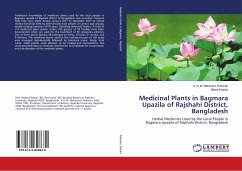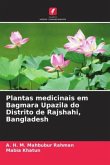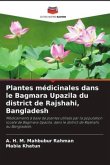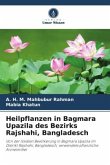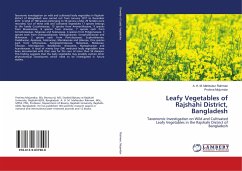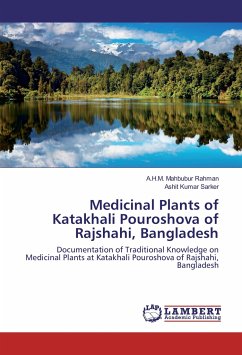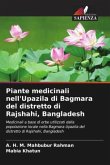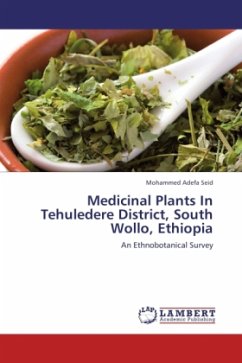Traditional knowledge of medicinal plants used by the local people in Bagmara upazila of Rajshahi district of Bangladesh was recorded. Frequent field trips were made during January 2017 to December 2017 to record medico-botanical data by interviewing local people of various age groups, mostly ranging between 20-76 years, including medicinal healers. A total of 114 medicinal plant species under 105 genera of 58 families have been documented which are used for the treatment of 96 categories ailments. Out of these plants species, 48 belonged to herbs, 36 trees, 21 shrubs, and 9 climbers. The medicinal plants used by the traditional users of the study area arranged alphabetically followed by botanical name, family, local name, habit, part(s) used, ailments to be treated and formulations. This study provided data on diversity, distribution and habitats for conservation and prioritization of the medicinal plants.
Bitte wählen Sie Ihr Anliegen aus.
Rechnungen
Retourenschein anfordern
Bestellstatus
Storno

